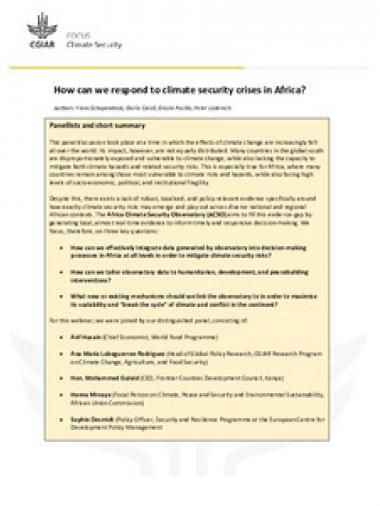How do we respond to climate security crises in Africa?

The climate crisis, and the security challenges it compounds, is no longer a hypothetical concept. For millions of individuals, households, and communities across the globe, climate change has already translated into very real threats to livelihoods, health, and physical security. Africa in particular emerges as disproportionately vulnerable to compounded climate and security risks. While we should avoid making continent-wide generalisations, it’s notable that over a quarter of the world’s 40 most climate-vulnerable countries are located in Africa, 4 of which were located in the top 10 as of 2019 (Eckstein, Kunzel and Schafer, 2021). Similarly, over 23 of the world’s 40 most fragile countries are located in Africa, 6 of which are located in the top 10 (Fragile States Index, 2021).
Despite this, there exists a lack of robust, localised, and policy-relevant evidence specifically around how exactly climate security risks may emerge and play out across diverse national and regional African contexts. The Africa Climate Security Observatory (ACSO) aims to fill this evidence-gap by generating local, almost real-time evidence to inform timely and responsive decision-making. We focus, therefore, on three key questions: 1) How can we effectively integrate data generated by observatory into decision-making processes in Africa at all levels in order to mitigate climate security risks? 2) How can we tailor observatory data to humanitarian, development, and peacebuilding interventions? 3) What new or existing mechanisms should we link the observatory to in order to maximise its scalability and “break the cycle” of climate and conflict in the continent?
Citación
Schapendonk F, Caroli G, Pacillo G, Läderach P. 2021. How can we respond to climate security crises in Africa?. Rome, Italy: CGIAR FOCUS Climate Security